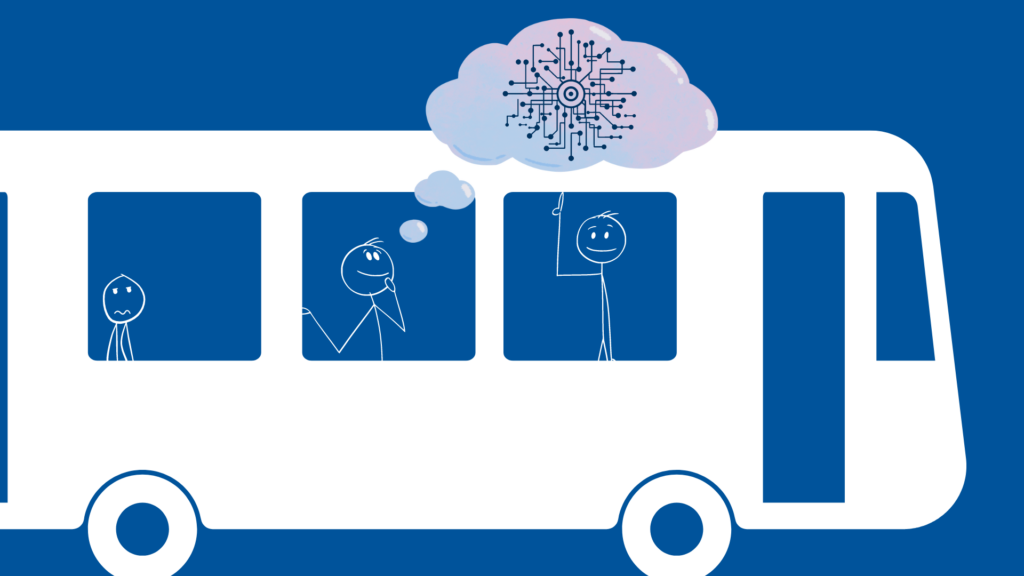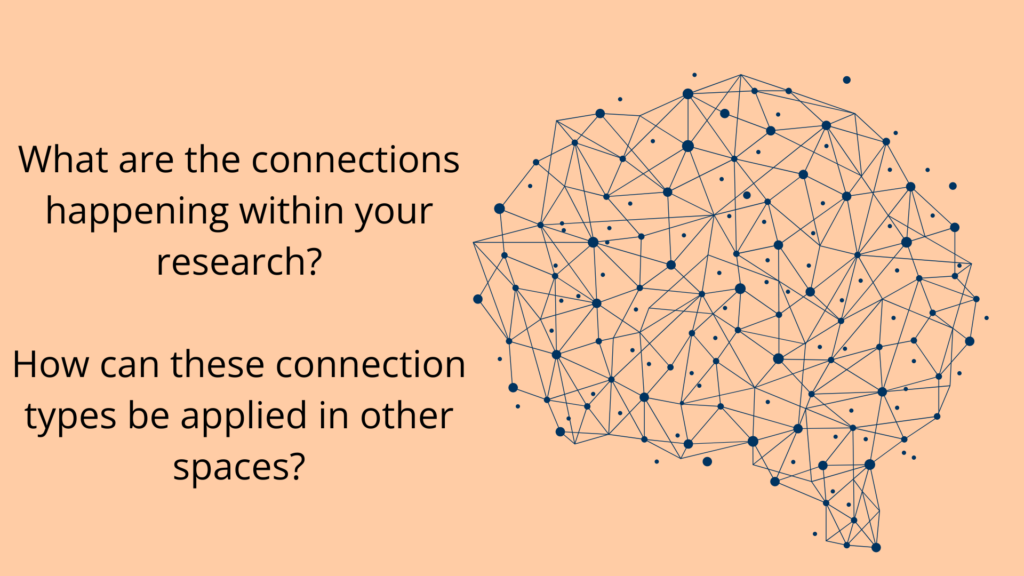This page contains a series of thought prompts in response to the question ‘I do “theoretical” research, how is research impact relevant to me?’
You can think about what connects your different research activities together. Research impact does not have to be tied 1-2-1 with a single research output. It can represent all or part of your work.
Research Impact can be a new direction for your work. An aesthetic philosopher doesn’t have to define and then pursue a solely ‘aesthetic philosophy’ type of impact.
If your work is theoretical, you have endless scope to turn it to new directions. Research impact is work done to make the world better. What interests you, what are you passionate about?
You can think about how your work touches on the concrete world. What’s something about your work that people always misunderstand? Are there people who have applied your field before, e.g., Alan Turing’s number theory work in cryptography, economists designing new markets, or drone designers using polynomials for trajectory generation? Or do a thought experiment: in a standard working day where you commute, use social media, bank online, etc., what parts of your life does your subject affect?

You don’t have to focus on your research ‘findings’. You can think about your research methodologies. Are you making unique ways of addressing problems, sorting evidence, visualising data, and making decisions? If you have a unique methodology, it can be a framework for other people to think about their challenges and opportunities.
Would a policymaker or an NGO or an industry benefit from an overview of your field’s findings / methods? You could think about writing a systematic-review-style paper. This could be a strategic move to make you the go-to expert for discussing their decisions.
When you take things to an abstraction, you can choose how to make them concrete again. This lets you take time to make them accessible to all sorts of people. How do abstraction and accessibility fit together, and is that something you might be passionate about? For starters, you could think about teaching (outside the University), you could think about public engagement, you could think about EDI. You can achieve substantial impact with a new methodology for making complex information more accessible.

Could you make your work even more abstract? Instead of specific numbers or ideas, what types of information are you organising in your theoretical research? Who else organises these types of information? Could they use your organisational processes and principles? If your work involves some graph theory, for example, who else uses graphs? What things could be a graph? The neurons in your brain? The connections in your social media profile? Are the factors in a policy evaluation framework better seen as vertices?
To think about new directions, what are the taken-for-granted skills in your work? How could they help with interdisciplinary work? If you’re thinking through abstract problems, you’re generating novel methods for thinking about abstract scenarios. These could lend themselves to humanities and social thought. Mark wanted Tash to believe Philip thought Lisa felt that Utku wanted to be Xander’s best friend. Can you follow all that? It’s a skill, handling complex chains of social relation. What are some other abstract scenarios in day-to-day life? What skills do they involve?
A fun exercise for thinking about possibilities: what’s a non-starter research impact idea you can come up with? A programming language that improvises its own rewrite rules; self-freezing floorboards; a law that applies only on Tuesdays; stilton aromatherapy. Once you’ve had an idea, take a second to quiz yourself: is it such a non-starter? Who might need it? Who could use it? In a similar vein, what are some things you do that could have an interesting or obscure use?
If you have an idea and you’d like to speak about it, please contact our team.
